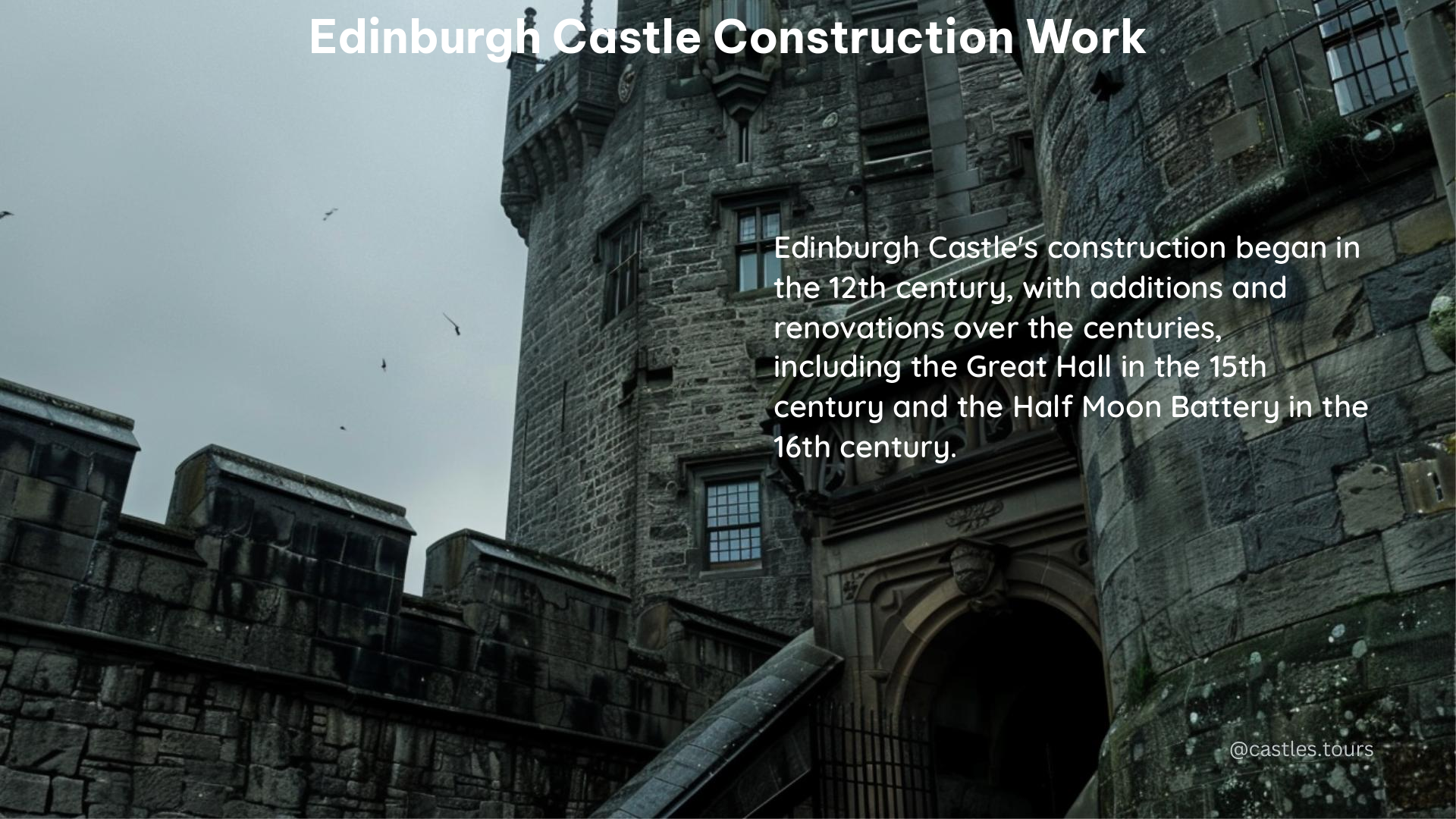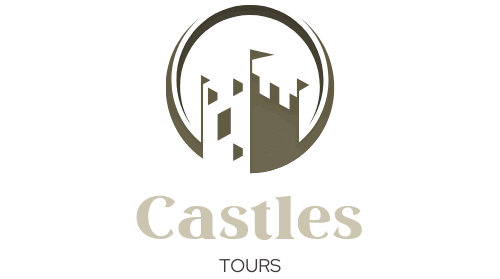Edinburgh Castle, a iconic landmark perched atop an ancient volcanic rock, has a rich history of construction and restoration projects that have shaped its appearance over the centuries. From the earliest building of St Margaret’s Chapel in the 12th century to the recent construction work for the Royal Edinburgh Military Tattoo, this historic fortress has undergone numerous transformations to maintain its grandeur and functionality.
The Evolving Architecture of Edinburgh Castle
Earliest Building: St Margaret’s Chapel
The oldest surviving building within the castle walls is St Margaret’s Chapel, which dates back to the 12th century. This small, Romanesque-style chapel was built during the reign of King David I and stands as a testament to the castle’s long and storied history.
Rebuilding and Additions
Over the centuries, Edinburgh Castle has been repeatedly rebuilt and expanded to meet the changing needs of its occupants. Significant construction work was undertaken in the 16th and 19th centuries, with the addition of new structures and the renovation of existing ones.
Building Materials
The castle is primarily constructed using Craigleith sandstone, a high-quality stone quarried from a nearby location. This durable and distinctive material has been a hallmark of the castle’s architecture, contributing to its timeless appearance.
Recent Construction Work

Royal Edinburgh Military Tattoo
One of the most recent construction projects at Edinburgh Castle is the annual construction of the stands for the Royal Edinburgh Military Tattoo. This iconic event, which takes place on the castle’s esplanade, requires a significant amount of temporary infrastructure to accommodate the thousands of spectators.
Tilbury Douglas: The Construction Contractor
Tilbury Douglas, a leading construction company, has been contracted to undertake the construction of the stands for the Royal Edinburgh Military Tattoo. This project involves a complex and carefully orchestrated process to ensure the safety and preservation of the historic site.
Construction Timeline
The construction of the stands typically begins in June and is completed by August, just in time for the Tattoo performances. This tight timeline requires a well-coordinated effort to ensure the site is ready for the event.
Safety Measures
The construction process at Edinburgh Castle involves close collaboration with Historic Environment Scotland and other stakeholders to ensure the safety of visitors and the historic site. Strict protocols are in place to protect the castle’s fabric and minimize any potential damage.
Visitor Information
Opening Hours
Edinburgh Castle is open year-round, with varying hours depending on the season. Visitors can check the official website for specific opening times and plan their visit accordingly.
Ticket Purchase
Tickets for Edinburgh Castle can be purchased online or by phone at 0131 225 1188. Advance booking is recommended, especially during peak tourist seasons, to ensure availability.
Interesting Facts
Most Besieged Castle
Edinburgh Castle holds the distinction of being the most besieged place in Britain, with a long history of numerous sieges and battles that have shaped its evolution.
Royal Residence
The castle has also served as a royal residence for Scottish kings and queens, including the famous Mary Queen of Scots, who gave birth to James VI within the castle walls.
References
- https://www.goconstruct.org/why-choose-construction/whats-happening-in-construction/iconic-buildings-edinburgh-castle/
- https://www.scottishconstructionnow.com/articles/tilbury-douglas-to-deliver-stands-for-royal-edinburgh-military-tattoo
- https://www.edinburghcastle.scot/the-castle/history
